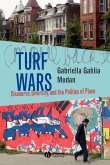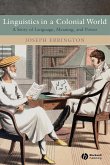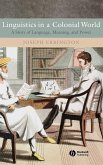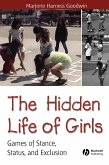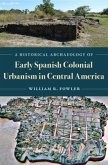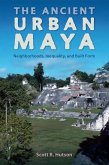Turf Wars: Discourse, Diversity, and the Politics of Place is the fascinating story of an urban neighborhood undergoing rapid gentrification. It is a story about how the members of a multi-ethnic, multi-class Washington, D.C., community deploy language to project conflicting images of their neighborhood. Waging wars around such issues as public toilets and public urination, the "morality" of co-ops & condos, and characterizations of "good" girls and "bad" boys, community members use these themes to create identities for themselves as legitimate community members (e.g., as tough urbanites or sophisticated historic preservationists) while creating identities to discredit others (e.g., "People who belong in the suburbs"). Turf Wars taps the power of discourse analysis to provide insight into the ways that local activity shapes larger urban social processes. In this innovative text, cultural anthropologist and linguist Gabriella Modan offers a detailed, rich, and highly engrossing ethnographic account of a neighborhood and the people who live and work there. She also provides readers with little background in linguistic anthropology, cultural geography, and urban anthropology a primer to key concepts and presents a range of sophisticated ideas in an accessible manner.
Hinweis: Dieser Artikel kann nur an eine deutsche Lieferadresse ausgeliefert werden.
Hinweis: Dieser Artikel kann nur an eine deutsche Lieferadresse ausgeliefert werden.
"The style of writing in Turf Wars is refreshing. ....Modan aims to bring to a wider audience an understanding of howlanguage works through the adoption of this more informal style."(Cultural Geographies, January 2010)
"A highly readable, lively, and unusually accessible work ofethnography that could be the centerpiece of many different kindsof classes from introductory courses in cultural, linguistic, orurban anthropology to graduate seminars in discourse-analyticmethod. It makes cleat the potential of discourse analysis as anethnographic tool. It is also likely to remain topical for manyyears, since it lays out with great clarity the fundamentalconundrums and contradictions that city dwellers must navigate inthe United States today and captures the discursive practices bywhich they manage them with great fluency." (Journal ofAnthropological Research, November 2008)
"Modan's ethnographic participant observation in Mount Pleasant,a diverse community in the Washington DC area, chronicles how thisurban neighborhood made up of African Americans, Salvadorans,Vietnamese, and Mennonites experienced diversification andgentrification, leading to contests over the use of public andprivate space, gender, kinship, and class. Conflicts came about asthe result of real estate speculation, the "politics of filth"debate over proposed public toilets, and other related issues.Modan (English, Ohio State Univ.) argues that the spatial practicesand politics contest and challenge the dominant ideas regarding theuse of space. The author presents two theoretical chapters onframing, discourse, and performance, and discusses ideas ofGoffman, Castells, Lefevre, and many others. In the process, sheilluminates how local activity can shape social processes. Materialis current and includes a 15-page bibliography ... .Recommended."(CHOICE)"Turf Wars is endlessly rich and lively, and will be afundamental text on how Americans in the beginning of thetwenty-first century live in cities." -Jane Hill,University of Arizona
"Turf Wars gives voice to old and new immigrants in acomplicated neighborhood. Modan makes a key contribution tounderstanding how language reflects and recreates processes ofincluding and excluding other people as proper members of thecommunity. Because so many people live in seemingly multiculturalbut deeply contested and changing communities, this book willengage readers drawn to the complexities of cities and thoseinterested in more egalitarian urbanpolicies." -Brett Williams, AmericanUniversity
"A highly readable, lively, and unusually accessible work ofethnography that could be the centerpiece of many different kindsof classes from introductory courses in cultural, linguistic, orurban anthropology to graduate seminars in discourse-analyticmethod. It makes cleat the potential of discourse analysis as anethnographic tool. It is also likely to remain topical for manyyears, since it lays out with great clarity the fundamentalconundrums and contradictions that city dwellers must navigate inthe United States today and captures the discursive practices bywhich they manage them with great fluency." (Journal ofAnthropological Research, November 2008)
"Modan's ethnographic participant observation in Mount Pleasant,a diverse community in the Washington DC area, chronicles how thisurban neighborhood made up of African Americans, Salvadorans,Vietnamese, and Mennonites experienced diversification andgentrification, leading to contests over the use of public andprivate space, gender, kinship, and class. Conflicts came about asthe result of real estate speculation, the "politics of filth"debate over proposed public toilets, and other related issues.Modan (English, Ohio State Univ.) argues that the spatial practicesand politics contest and challenge the dominant ideas regarding theuse of space. The author presents two theoretical chapters onframing, discourse, and performance, and discusses ideas ofGoffman, Castells, Lefevre, and many others. In the process, sheilluminates how local activity can shape social processes. Materialis current and includes a 15-page bibliography ... .Recommended."(CHOICE)"Turf Wars is endlessly rich and lively, and will be afundamental text on how Americans in the beginning of thetwenty-first century live in cities." -Jane Hill,University of Arizona
"Turf Wars gives voice to old and new immigrants in acomplicated neighborhood. Modan makes a key contribution tounderstanding how language reflects and recreates processes ofincluding and excluding other people as proper members of thecommunity. Because so many people live in seemingly multiculturalbut deeply contested and changing communities, this book willengage readers drawn to the complexities of cities and thoseinterested in more egalitarian urbanpolicies." -Brett Williams, AmericanUniversity


